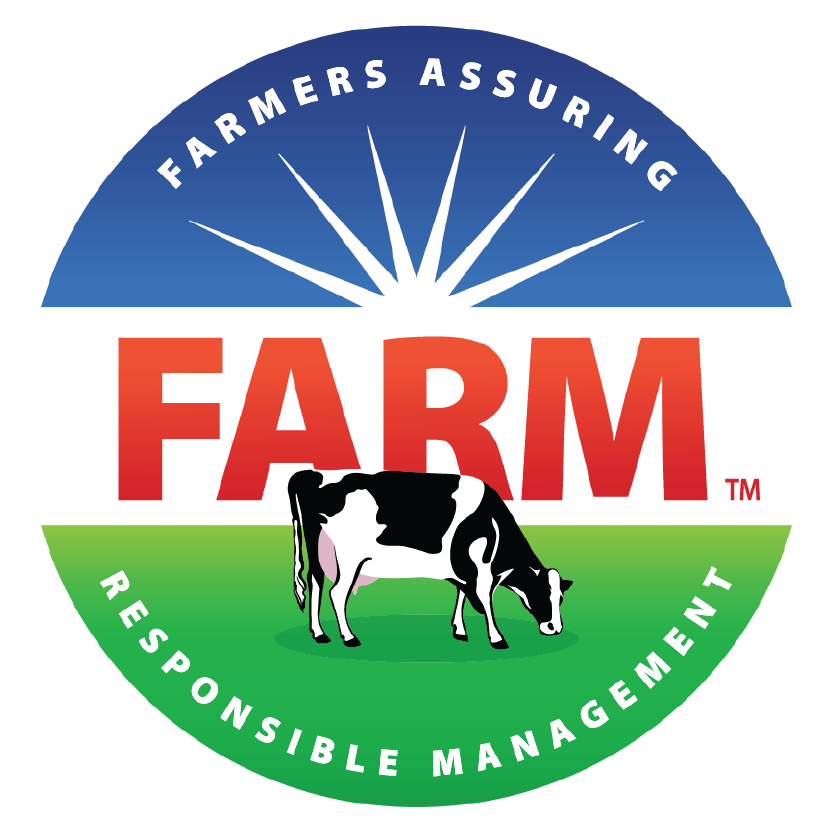Practices and Technologies
This page features summaries of over 80 practices, offering practical insights into their economic and management impacts and an overview of each practice's environmental effects. The content is supplemented with links to further technical and scientific resources.
To learn more about how this content was developed, see About Us.
home ▶ practices and technologies
Explore the library by scrolling through the full practice list below
Filter by area of interest using filters on the left
Click on the practice name to view full practice details
HOW TO USE


Accelerated Calf and Heifer Growth















Automated Body Condition Scoring















Bedding Management















Biogas Collection: Anaerobic Digester















Biogas Collection: Anaerobic Digester with Co-Digestion















Biogas Collection: Covered Manure Storage and Flare















Calf Housing and Ventilation















Compaction Prevention: Controlled Traffic















Compaction Prevention: Tire Pressure Adjustments















Compost Bedded Pack















Composting: In-Vessel/Drum















Composting: Static Stacking and Windrows















Compressor Heat Recovery















Cover Crops: Forage















Cover Crops: Non-Feed















Deficit Irrigation Techniques















Diet Reformulation Strategies: Adding Byproducts















Diet Reformulation Strategies: Lipid Supplementation















Diet Reformulation Strategies: Protein Balancing















Diverse Forage Crop Rotation: Alfalfa















Diverse Forage Crop Rotation: Sorghum















Drag Lines















Erosion Control: Grassed Waterways















Feed Bins















Feed Bunk Management















Feed Center















Heat Abatement and Temperature Management















High-Efficiency Compressors















High-Efficiency Fans for Ventilation and Cooling















High-Efficiency Motors















High-Efficiency Water Heaters















High-Quality Milking Routines















High-Quality Silage Management















Improved Surface Irrigation















Integrated Pest Management: Insects















Integrated Pest Management: Weeds















Interseeding Between Corn















Irrigation Scheduling















LED Lights















Lameness Prevention and Monitoring















Low Pressure Sprinkler Systems















Manure Collection: Conversion from Flush to Scape or Vacuum Systems















Manure Separation: Coarse Solid-Liquid Separation via Sloped Screens and Screw Press















Manure Separation: Fine Separation via Centrifuge and Vibrating Screen















Manure Separation: Fine Separation via Chemical Flocculation and Dewatering















Manure Storage Facility: Geomembrane or Concrete Liners















Manure Storage: Decreasing Storage Time via Increased Manure Spreading Frequency















Manure Storage: Lagoon Acidification















Manure Subsurface Drip Irrigation















Manure Treatment: Vermifiltration















Mastitis Prevention: Dry Off Procedures















Mortality Management















No-Till















Non-Nutritive Feed Additives: Ionophores















Non-Nutritive Feed Additives: Methane Inhibitors















Nutrient Management: Accounting For Nitrogen Credits from Legumes and Manure















Nutrient Management: Apply Nutrients to Meet Realistic Yield Goals















Nutrient Management: Applying Manure on a Phosphorous Basis















Nutrient Management: Fertilizing with Compost and/or Manure















Nutrient Management: Manure Injection















Nutrient Management: Precision Nutrient Application















Nutrient Management: Split Manure and Fertilizer Application















Nutrient Recovery: Evaporation Technologies















Nutrient Recovery: Ultrafiltration and Reverse Osmosis















Plate Cooler















Precision Feeding: Nutritional Grouping of Cattle















Producing Renewable Energy: Solar















Producing Renewable Energy: Wind















Purchasing Renewable Energy















Reduced Tillage and Strip-Tillage















Replacing Fossil Fuel Engines with Electric Motors or Renewable Natural Gas (RNG) Engines















Riparian Buffer















Rotational Grazing















Rumination, Activity, Estrus and/or Temperature Monitors















Selecting Water-Efficient Crops















Selective Breeding to Support Sustainability Goals















Silage Leachate Mitigation and Control















Silvopasture















Variable Frequency Drives: Milk Transfer Pump















Variable Frequency Drives: Milk Vacuum Pump















Variable Speed Fan Controls














TABLE KEY | Hover over the icon to see a brief description

MAJOR ENVIRONMENTAL IMPACT






CAPEX
OPEX
COMPLEX



FUNDING
FARM ES





EMERGING PRACTICE
Emerging Practices are not widely adopted in U.S.Dairy Farms.These practices are either exceptionally innovative, lack substantial scientific evaluation of their effects, or may not yet be commercially feasible.
* Lighter shade indicates there is currently less scientific evidence for environmental impact.
Filters
Filter
Filter by Implementation Needs
Low
High
Low
High
Low
High
Exclude Emerging Practices

Included in FARM ES Assessment
Filter by Environment Benefits

Reduce Greenhouse Gas Footprint

Improve Water Quality

Conserve Water

Soil Health / Regenerative

Biodiversity

Improve Resource Use Efficiency
Filter by Funding Opportunities

Widely eligible for funding through federal cost-share programs

Widely eligible for other federal conservation financing programs

Widely eligible for carbon credits

Potential to positively impact cash flow
Table Key
The information presented in the table is based on insights from experts and professionals.
It should not form the basis for decisions with financial ramifications without first obtaining appropriate professional, scientific, engineering and/or legal advice specific to your organization. Dairy Management Inc. and Innovation Center for U.S. Dairy makes no representations, warranties, or guarantees related to the information provided in this document.
Emerging Practices

"Emerging Practices" are not widely adopted in U.S. Dairy Farms. These practices are either exceptionally innovative, lack substantial scientific evaluation of their effects, or may not yet be commercially feasible.
PRACTICE ENVIRONMENTAL BENEFITS
REDUCES FARM GREENHOUSE GAS (GHG) FOOTPRINT
Practice reduces whole-farm greenhouse gas emission intensity and/or absolute emissions AND/OR sequesters soil carbon.

Moderate to strong scientific evidence of positive impact.

Practice is hypothesized to have a positive impact, but there is little to no scientific evidence of a positive impact.
IMPROVES WATER QUALITY
Practice reduces risk nutrients (i.e. nitrogen and phosphorous), sediments, and other contaminants from entering water bodies either by reducing erosion, run-off, and leaching, improving soil and water nutrient holding capacity, minimizing nutrient overapplication, and/or intercepting runoff before it reaches surface water.

Moderate to strong scientific evidence of positive impact.

Practice is hypothesized to have a positive impact, but there is little to no scientific evidence of a positive impact.
CONSERVES WATER
Practice enables farmers to reduce net agricultural freshwater use per unit of production either by minimizing irrigation water evaporation, overspray, deep percolation, and runoff, optimizing soil water holding capacity, and increasing water use efficiency.

Moderate to strong scientific evidence of positive impact.

Practice is hypothesized to have a positive impact, but there is little to no scientific evidence of a positive impact.
SUPPORTS SOIL HEALTH AND REGENERATIVE FARMING
The practice protects and improves soil health, biodiversity, climate, and water resources while supporting farming business development.

Moderate to strong scientific evidence of positive impact.

Practice is hypothesized to have a positive impact, but there is little to no scientific evidence of a positive impact.
SUPPORTS BIODIVERSITY
The practice is associated with positive effects, such as maintaining or enhancing the biodiversity of the area and the surrounding ecosystems, promoting the health of pollinators, ensuring the diversity of genetic material (wild and commercial), and hindering invasive species.

Moderate to strong scientific evidence of positive impact.

Practice is hypothesized to have a positive impact, but there is little to no scientific evidence of a positive impact.
INCREASES RESOURCE USE EFFICIENCY
The practice reduces the amount of resources required to produce a given product by reducing waste and losses and minimizing yield and production gaps.

Moderate to strong scientific evidence of positive impact.

Practice is hypothesized to have a positive impact, but there is little to no scientific evidence of a positive impact.
PRACTICE IMPLEMENTATION NEEDS
CAPEX - CAPITAL EXPENDITURES
Capital expenditures (CapEx) are primarily a one-time investment in non-consumable assets used to maintain existing levels of operation within a company and to foster its future growth. Capital expenditures include tractors, trucks, autos, machinery, buildings, land improvements, and miscellaneous capital expenditures.

Negligible
Most farmers could implement the practice without upfront costs.

Minimal
Practice will require minimal investment.

Some
Practice will require some investment but less likely to require substantial external resources and planning.

Substantial
Practice will require substantial investment and some technical know-how and planning or implementation costs.

Major
The practice will require a major multi-year investment and could have prerequisites, consulting, or other implementation costs. It may be considered a separate business unit.
OPEX - OPERATING EXPENSES
Operating expenses (OpEx) can also be called 'overhead' or 'fixed costs.' They include custom work, contract work, machine hire expenses, and the rental and leasing of farm machinery, equipment and vehicles.

Negligible
Insignificant expenses, minimal impact.

Low
No new expense categories, but the practice may require low, but incremental costs.

Medium
Expense categories like labor, utilities, supplies and maintenance could increase by a factor compared to current run-rates.

High
Substantial spending, likely new expense categories, and ongoing costs to achieve productivity targets.
IMPLEMENTATION COMPLEXITY
Implementation complexity is a subjective rate of the technical complexity of practice implementation and maintenance. Practices with higher implementation complexity will require increased levels of skilled labor and/or specialized equipment.

Simple
Practice implementation does not require specialized skills beyond those available at most farms and little to no new equipment or technology.

Moderate
Practice implementation will require some technical or skilled labor and industry standard equipment.

Highly
Complex
Practice implementation will require substantial dedicated skilled labor, specialized equipment and experts.
PRACTICE FUNDING OPPORTUNITIES
FEDERAL COST-SHARE PROGRAMS

Practice is widely eligible for funding through federal cost-share programs such as the Natural Resource Conservation Service (NRCS), the Environmental Quality Incentive Program (EQIP), and the Conservation Stewardship Program (CSP).
CARBON MARKETS

Practice is commonly eligible for funding though carbon markets (inset and/or offset)
OTHER CONSERVATION FUNDING PROGRAMS

Practice is widely eligible for federal conservation funding through the Farm Services and Rural Development Agency.
REVENUE POTENTIAL

The practice has the potential to create new revenue streams and/or increase farm profitability. Farms may need to obtain carbon credits and/or outside funding to realize revenue potential.
FARM ENVIRONMENTAL STEWARDSHIP

Practice is either (1) included in the FARM ES V3 Model or the impact of the practice is indirectly captured by the model, or (2) included in the FARM ES Conservation Practice Questionaire (CPQ).